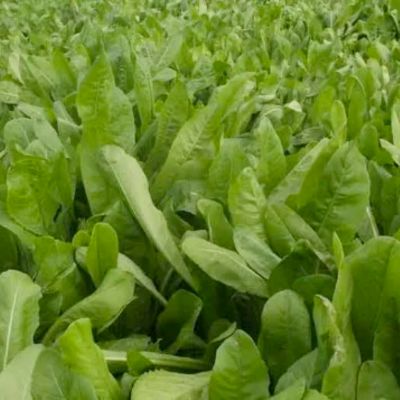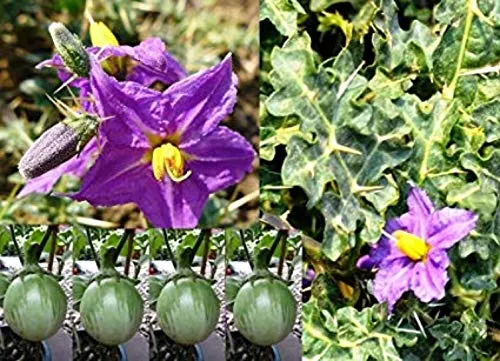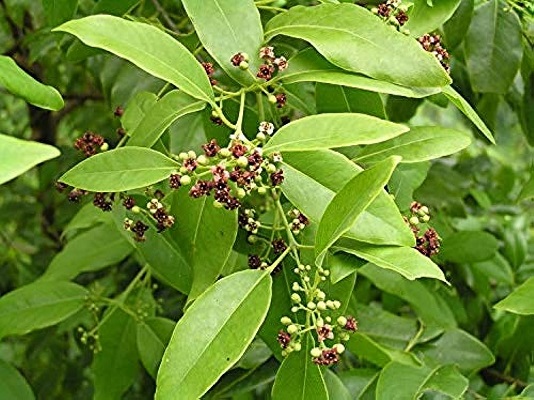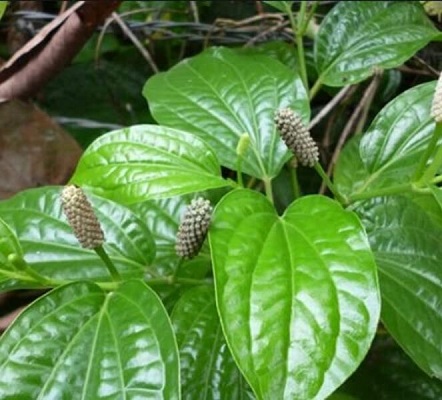On This Page
Kantakari – Solanum Xanthocarpum
Introduction
Kantakari is a prickly, prostrate, perennial herb that grows throughout India. It is commonly known as Wild Eggs Plant. The name Kantakari indicates the presence of thorns in its stem.The botanical name of Kantakari is Solanum xanthocarpum and belongs to the family Solanaceae. The name is given so because Solanum means night shade, Xantho means yellow and Carpum means fruit.
The major phytoconstituents found in roots and other parts of Kantakari are solasonine, coumarins, scopolin, scopoletin, esculin etc. These phytoconstituents in Kantakari helps in its antiinflammatory, antiviral, analgesic, cardiostimulant and demulcent actions. The root extract of Kantakari has antioxidant activities. Fruit extract of this plant has diuretic and antioxidant activities which, aid its use in urolithiasis. The fruit extract of Kantakari is also effectively used in nephrotoxicity and these plants also have wound healing properties. It is one among the herb of choice at Dr. Gupta’s IAFA.
Action of Solanum xanthocarpum or Kantakari in Allergies
Phytoconstituents found in Solanum xanthocarpum or Kantakari is mainly solasonine. The whole plant generally contain coumarins, scopolin, scopoletin, esculin and esculetin. Carpesteral, gluco-alkaloid solanocarpin, solamine-s, solasodine, solamargine, stigma sterol and campestrol are phytoconstituents that specially obtained from fruit extract. Seeds contain solanocarpine and essential amino acids.
These phytoconstituents helps in obtaining actions like antiinflammatory, antibacterial, antimicrobial, analgesic, stimulant, appetizer, carminative, cardio stimulant, expectorant, demulcent and aphrodisiac. The antimicrobial, antibacterial and antiinflammatory actions of Kantakari helps to act against different allergens. Hence it can effectively be used in allergic reactions. IAFA is successfully using Kantakari in certain allergic conditions.
Vernacular Names
| Hindi name | Choti kateri, Bhatakataiyya, Rengani |
| Sanskrit name | Kantakari, Dusparsha, Kshudra , Vyaghri , Kantakari, Nidigdhika |
| English name | Yellow-berried Nightshade, Febrifuge plant |
| Tamil name | Kandan kattiri |
| Bengali name | Kantikari |
| Marathi name | Bhui ringani |
| Telgu name | Nelamulaka |
| Gujrati name | Bhiya Ringani |
| Punjabi name | Kandiyari |
Botanical Name
Solanum xanthocarpum Schrad & Wendl.
Family
Solanaceae
Ayurvedic Reference of Kantakari
- Small sized tree
- Stem is woody, erect
- Leaves are alternate, long and hairy
- Inflorescence is panicle cyme
- Flowers are pink colored
- Fruits are legume or pods
Ayurvedic Reference of Kantakari

Geographical distribution of Kanchanara – Bauhinia variegata
Found throughout India commonly in road sides. Due to it’s beautiful flowers, it is cultivated in gardens.
Phytoconstituents of Kanchanara – Bauhinia variegata
The plant contains phytoconstituents like hentriacontane, octacosanol, sitosterol and stigmasterol etc.
Parts Used of Solanum xanthocarpum or Kantakari
- whole plant
- root
- fruit
Preparation and dosage of Solanum xanthocarpum or Kantakari
- Powder (choornam) – 1-3 gm per day
- Juice (swaras)– 20-30ml per day
- Decoction (kashayam)-50-100ml per day
Medicinal Properties and Uses of Solanum xanthocarpum or Kantakari
- Food allergy: eliminates aam visha (free radical) and stimulate agni (digestive fire), hence helps in food allergic conditions.
- Nasal allergy: found very effective in breathing problems, cough and cold, asthma, rhinitis, sinusitis and bronchitis.
- Skin allergy: krimighan (helps to remove intestinal worms), kanduhara (relieves in generalized pruritis).

Have A Health Issue?
Consult Online
- Dr. Sahil Gupta (B.A.M.S., M.H.A.)
Ayurvedic Allergy Specialist
CEO & Founder of IAFA®
Home remedies of Solanum xanthocarpum or Kantakari
Kantakari is a common herb used as in Indian sub-continent from Ancient times. The ancient knowledge of Indian herbs were transferred among generations orally as well as in the form of manuscripts. IAFA is conducting various awareness programs to teach about the important and useful herbs of Indian sub-continent.
- In Fever (Jwara) – The roots of Kantakari is collected, crushed and made into decoction. It when taken twice a day for about a week is useful in fever.
- In Cough (Kasa) – The powder of root or whole plant is taken. It is then added with honey and taken in cough.
- In Asthma (Swasa) – 1-2 gm of root powder of Kantakari is taken along with honey or ghee.
- As Carminative (Dipana) – 50-100 ml of decoction of whole Kantakari plant is taken twice a day.
- In Skin diseases (Kushta) – The root is taken and made into a decoction. 50-100 ml of this decoction is used twice a day.
- In Diabetes (Prameha) – The fine powder of root of Kantakari is taken and mixed with hot water and taken.
- In Worm infestations (Krimi)- The powder of Kantakari drug is taken along with honey in patients with worm infestations.
- In Digestive diseases (Pachan) – The fine powder of this plant is mixed with honey and taken before food for digestant activity.
Ayurveda is an ancient recorded knowledge originated in India. Dr. Gupta’s IAFA is following the real Ayuvedic scriptures and imparting the herbal as well as natural solutions to all.
Follow IAFA for a real Ayurveda Knowledge!!!
IAFA products are completely natural solutions for various health related problems.
Was this Page Helpful?
Read More Articles
-

Kasini (Cichorium intybus)
Kasini (Cichorium intybus) commonly known as Chicory is a perennial herb, with large…
-
-









